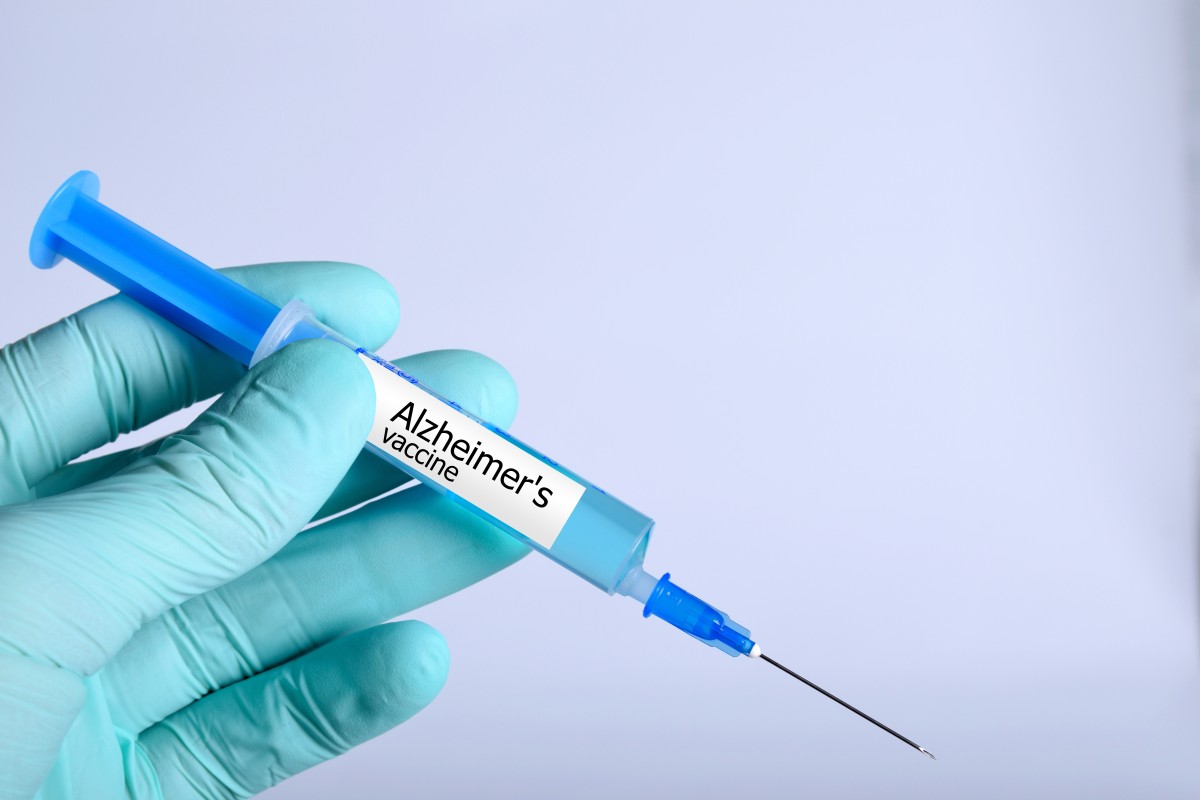It might at first sound improbable, but an Alzheimer’s vaccine might soon be available.
Scientists say the approach that they have developed toward the most common form of dementia is showing strong potential, both as a treatment for the illness as well as a way of producing a vaccine that is effective.
An anti-body treatment as well as a vaccine have been effective in reducing symptoms of Alzheimer’s in mice, the researchers say. They are confident the findings will translate well when used on people.
Should the findings be found to be valid in clinical trials on people it could be transformative, says Professor Mark Carr of the Leicester Institute of Structural and Chemical Biology at Leicester University in Britain, a member of one of the teams that conducted the research into the new treatment.
It makes it possible not only to treat Alzheimer’s when symptoms appear but also potentially to vaccinate against the disease even before symptoms are apparent, Carr says.
The research was also conducted at the University Medical Center in Göttingen in Germany as well as by LifeArc, a medical research charitable organization.
In 2020, about 5.8 million Americans were said to be suffering from Alzheimer’s disease. The debilitating illness is the cause of about two-thirds of all dementia issues. Symptoms include problems with memory, language, behavior, and loss of motivation.
New approach
Studies over the years have found that the onset and development of Alzheimer’s is closely linked to the buildup in the brain of amyloid beta protein that is found in plaques, the researchers explain.
The amyloid beta protein exists naturally in the brain as molecules that are string-like and often join together, forming plaques and fibers. When Alzheimer’s occurs, these molecules are truncated, or shortened. Some scientists now believe that these forms are a key element in causing the onset and progression of the disease.
Earlier studies focused on dissolving the amyloid beta protein in plaques in the brain, Thomas Bayer of the University Medical Center in Göttingen says. Those trials, however, failed to show much success when it came to cutting down on the symptoms of Alzheimer’s, with some even showing negative side effects, he adds.
The researchers turned instead to another approach. They focused on a different form of the protein found in the plaques. They consider that protein, which is soluble, to be highly toxic.
They identified antibodies present in mice that neutralized that form of soluble amyloid beta, but failed to bind to normal forms of the protein or to the plaques, Bayer says.
Joint effort
When these findings were made, the research into the new approach became a team effort among the two universities and the charity involved.
• Researchers at LifeArc, led by Dr. Preeti Bakrania, adapted the antibody so the immune system found in humans would fail to recognize it as being foreign and so would accept it. They called this an antibody that was “humanized.”
• When the research group at Leicester University saw how and where the antibody was attaching to the shortened form of amyloid beta, the team members were surprised. They noted that the amyloid beta protein was folded into a structure like that of a hairpin.
Such a structure had not been seen before in amyloid beta, says Carr. Finding such a structure, however, allowed the research team to stabilize the hairpin shape. They were then able to bind the protein to the antibody in a similar way.
Their idea was to use the engineered type of amyloid beta as a vaccine that could prompt a person’s immune system to create the antibodies.
When studies were made on mice, the scientists found that those mice that were administered the “vaccine,” which they called TAPAS, did indeed produce the antibodies.
• The group at the German university followed up by testing both the antibody and the engineered vaccine TAPAS in two different groups of mice. They found that the vaccine as well as the antibody worked to restore brain function. It brought back loss of memory that had taken place, boosted the metabolism of glucose in the brain, and also served to cut down on the amyloid beta plaque formation in the brain.
Exciting prospects
Both the antibody engineered for humans as well as the TAPAS vaccine are different from any other antibodies or vaccine that were tested for Alzheimer’s disease, Bakrania of LifeArc says. The reason is that they target a form of the protein that is different.
As a result, she adds, the findings are exciting and provide real promise as a potential treatment for Alzheimer’s not only when symptoms are found but also to vaccinate people against Alzheimer’s before symptoms even appear.
They could transform the lives of many people, Bakrania adds.
The findings are published in the journal Molecular Psychiatry.






